Interview With Wedding Photographer Brett Hickman
Ever since I met Brett I’ve been a fan of his photography. Not only is he a skilled photographer, he’s also very business-minded and an all-around great guy. I hope you will enjoy this interview with Brett as much as I enjoyed interviewing him.
You can find Brett on his own site at Brett Hickman Photographers as well as on Twitter, Facebook, Pinterest, and Instagram.
Hey Brett, can you tell our readers a bit about yourself, where you’re from and the kind of work you do?
I’m born and raised in Orange County, California. I am the youngest of four children. At age 19 I moved up to the San Francisco Bay area for a period of roughly 5 years where I studied film, in particular the production side of it all. I returned back to my home town and began working in the television industry for a short period of time before leaving and starting my own wedding and portrait photography business.
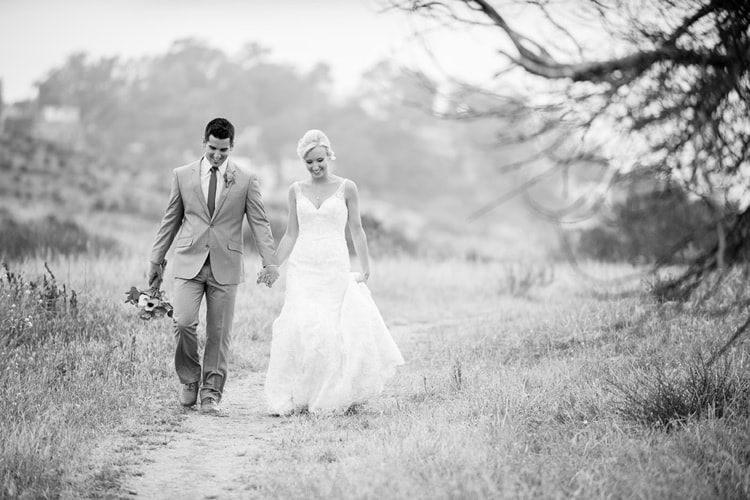
Did you study photography or are you self-taught? What got you into photography, and when/how did you decide to focus 100% on your craft and build your business?
A little of both actually. I am mostly self taught, however studying cinematography and other elements of motion picture certainly lend a great deal of understanding and organization, not only with regard to the creative and technical sides of photography – because know doubt there’s a certain balance of both—but the business side of it as well.
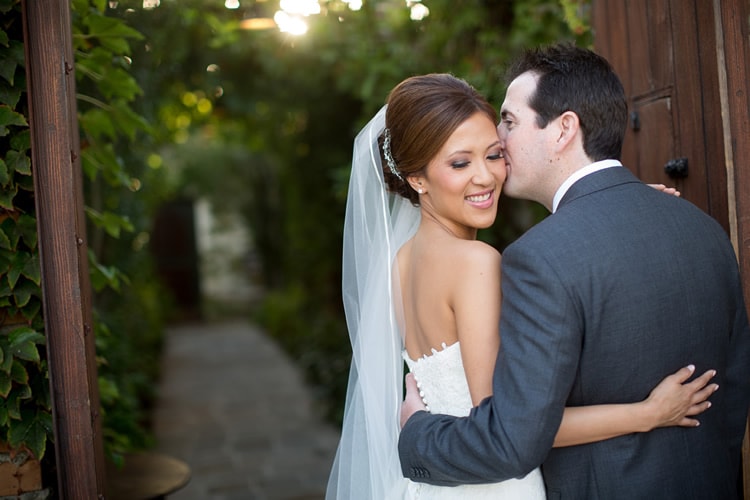
How would you describe your style (style of photography/art and shooting style)?
That’s always a tough question. I’d like to say honest. Classy. Elegant. Most photos of my clients, and the environment around them, depict a moment where emotion has peeked, and the walls that people put up have come down for a brief moment in time. That’s what I am after.
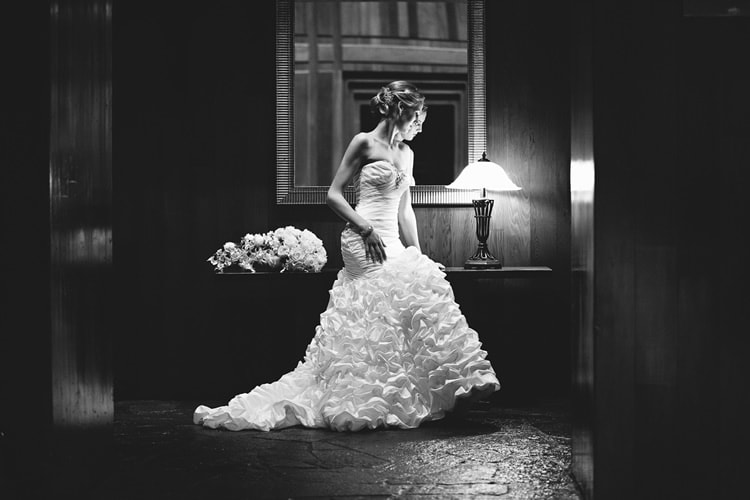
What were your early influences? Any photographers you looked up to or you still look up to today?
My earliest influences, were actually films, and the cinematographers and directors that created them. With regard to wedding photography only, my biggest influences were Jonas Peterson, and Jerry Ghionis – coincidentally, both Aussies. I still am in awe of their work today. I can look through a Jonas Peterson album today and still get emotional while thinking to myself, now how did he pull that off? And Ghionis – he’s brilliant with his light, the way he interacts with clients, and the financial/business elements of it all. Jerry’s a businessman at the top of his game.
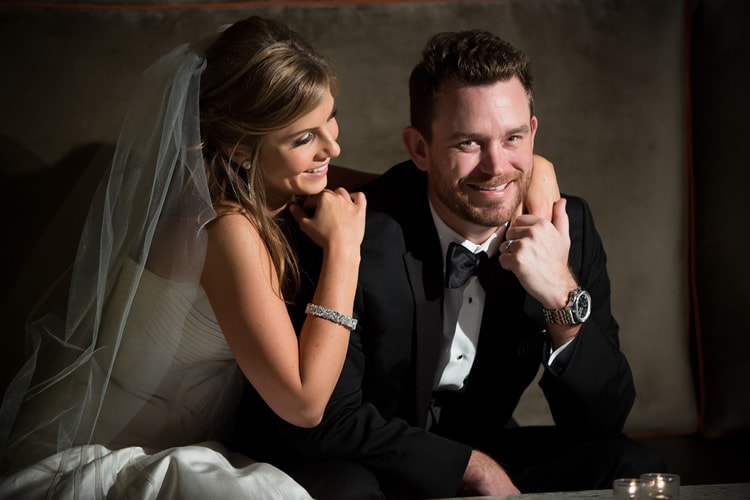
What got you into shooting weddings?
Well, I was doing a lot of portrait shooting at the time and was being asked regularly by past clients whose children were coming of age if I could shoot their weddings. I shot my first wedding. It wasn’t pretty. I quickly learned that wedding photography is something all its own. Lots of studying, reaching out to others in the industry, talking with my influences (Jerry and Jonas) online, via email or in person, I began to tailor a particular skillset and approach to shooting weddings my way.
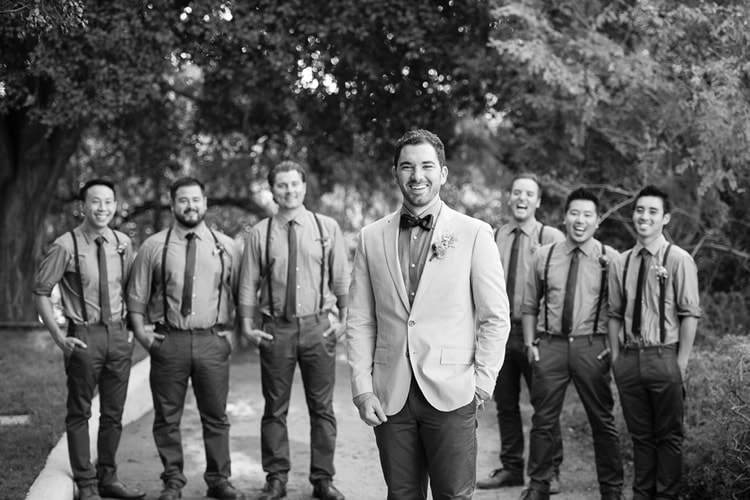
You travel quite a lot shooting weddings and engagement sessions. What would you say was your favorite place/destination or experience? And why?
I’d have to say Manhattan. I think because it’s one of my favorite US destinations – no matter if it’s vacation or shooting an opulent wedding. There’s a vibe and energy there that really lends itself to a heightened level of creativity and inspiration. Getting to sleep the night before my New York destination wedding is tough when you’re really hyped on all the opportunities for great photography the next day.
When you shoot an engagement/wedding, what are your goals? Of course pleasing the bride and groom must surely be high on the list of priorities, but I’d be interested to know what drives you to shoot weddings, stay creative and keep being passionate about it.
Challenging locations, challenging light, personalities, timetables and high expectations are all part of being a wedding photographer. Amidst all of that, it can be a challenge to direct groups of people, be in multiple places at nearly one time to capture real events as they happen whilst maintaining a superb and creative quality and aesthetic to your work. That’s the number one driving force behind why I create timeless, fine art wedding photographs – it’s a challenge. It’s immensely fun. It’s so rewarding. It challenges you to one-up yourself on last week’s wedding and that really awesome shot you got, and because of that, I feel I grow as a photographer just a little with every wedding I shoot.
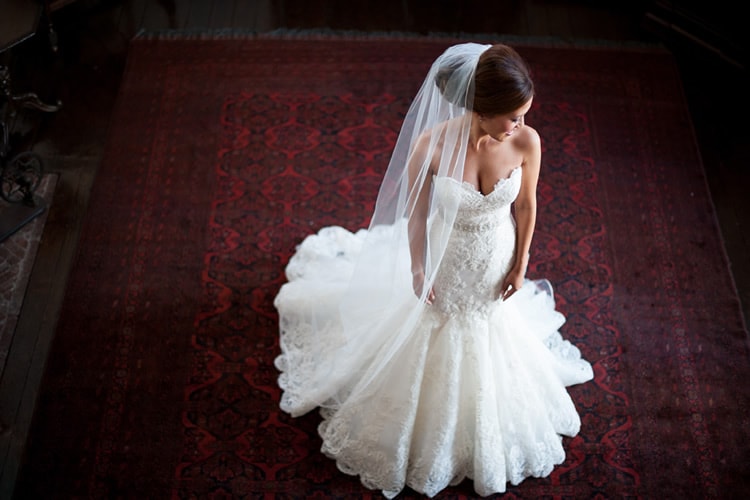
Since a lot of photographers are gear heads, could you tell us a bit more about the gear you use? I know you’re a Canon shooter, but could you give us a quick run down of your favorite pieces of gear and the camera/lenses you couldn’t live without, as well as the gear you usually bring on the job?
Funny you asked this question. I was just talking to a colleague of mine who’s a Nikon shooter. I was talking about the prospect of switching over to Nikon. I do love my Canon gear, and I’ve always been a Canon shooter. I shoot the Canon 5D Mark III. My two favorite lenses are the 70-200 f/2.8 II and the 50mm f/1.2. I can’t live without them. But the best piece of gear I own, and the biggest game changers are my four Canon speedlights – 600ex-rt. The built in radio trigger and ability to manually adjust your flashes’ power remotely from your on camera trigger lends me the ability to capture photographs I could not have captured before.
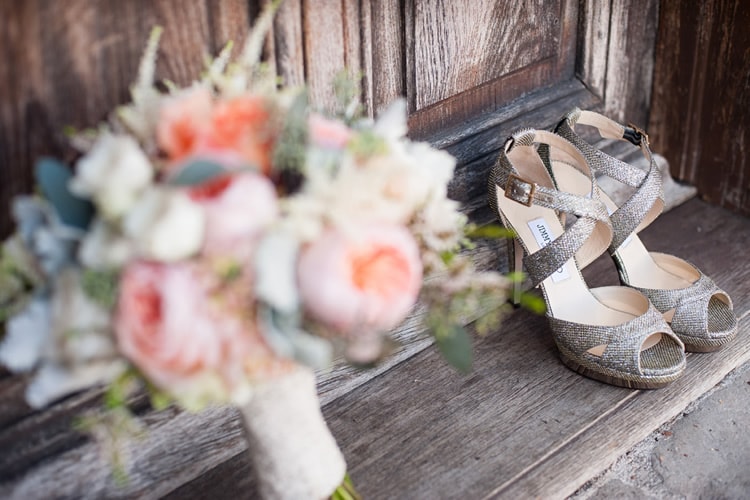
The days of editing and manipulating photos in a darkroom are pretty much over, but that doesn’t mean the photographs we take today with our digital SLR cameras don’t need post-prod work. From the minute the pictures are in your computer after a shoot, and the moment they are in the client’s hands – what happens? What does your workflow look like? What tools/software/apps do you use? Do you spend more time with the camera or in front of the computer?
I certainly spend more time behind the computer than the camera, however my time culling and editing behind my computer is still greatly reduced and pretty minimal due to a couple of great resources. First, I cull my images using Photo Mechanic. It’s the fastest, easiest way to cull your images and prep for editing. I cull an entire wedding in about 2.5 hours or less. I use Lightroom 5 for all of my editing. And my biggest time saver is getting it all right in camera. I shoot Kelvin for my white balance setting, and I proceed with shooting once I know my settings are really dialed in. That way when I get my images into Lightroom, it’s a light contrast bump, and very minor color correction. That’s about it.
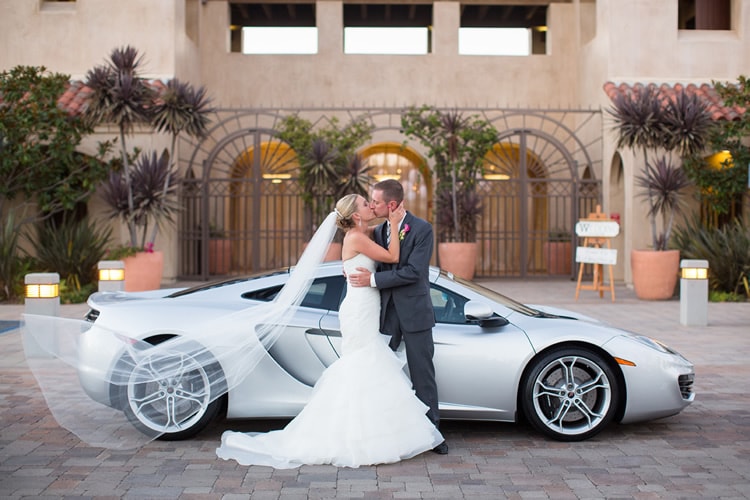
What do you think is the future of photography? With the rise of camera phones, mirror-less cameras and other new technologies, where do you think all of this is heading? Will DSLR still have a place in 5 or 10 years?
Absolutely. Just like film still has a place, not only universally, across all industries, but especially in weddings. In fact, film is on the rise with great photographers like Jose Villa and many other “rock star” wedding photographers turning to and promoting the use of 35mm and medium format film. I see no reason the DSLRs would be a thing of the past in 5-10 years.
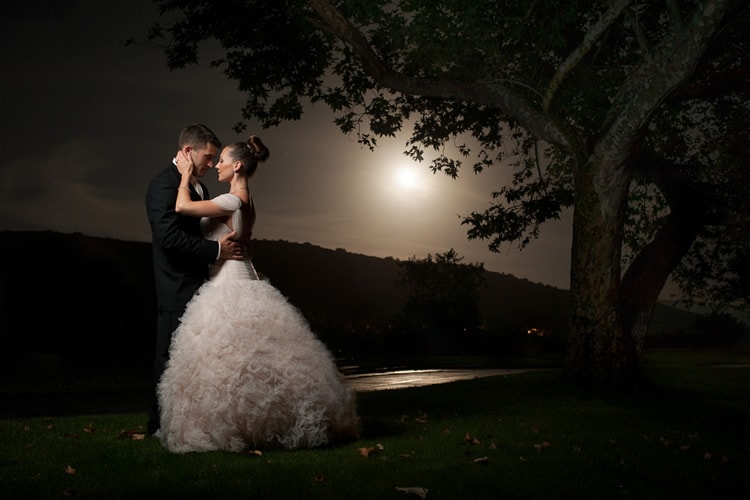
Other than photography, what are your other passions or hobbies?
I love my wife and my German Shepherd dog. I love the outdoors. I love Crossfit. As long as I have my family, my pets and the outdoors, I am completely content.
Huge thanks to Brett for taking the time out of his very busy schedule to do this interview ;)
